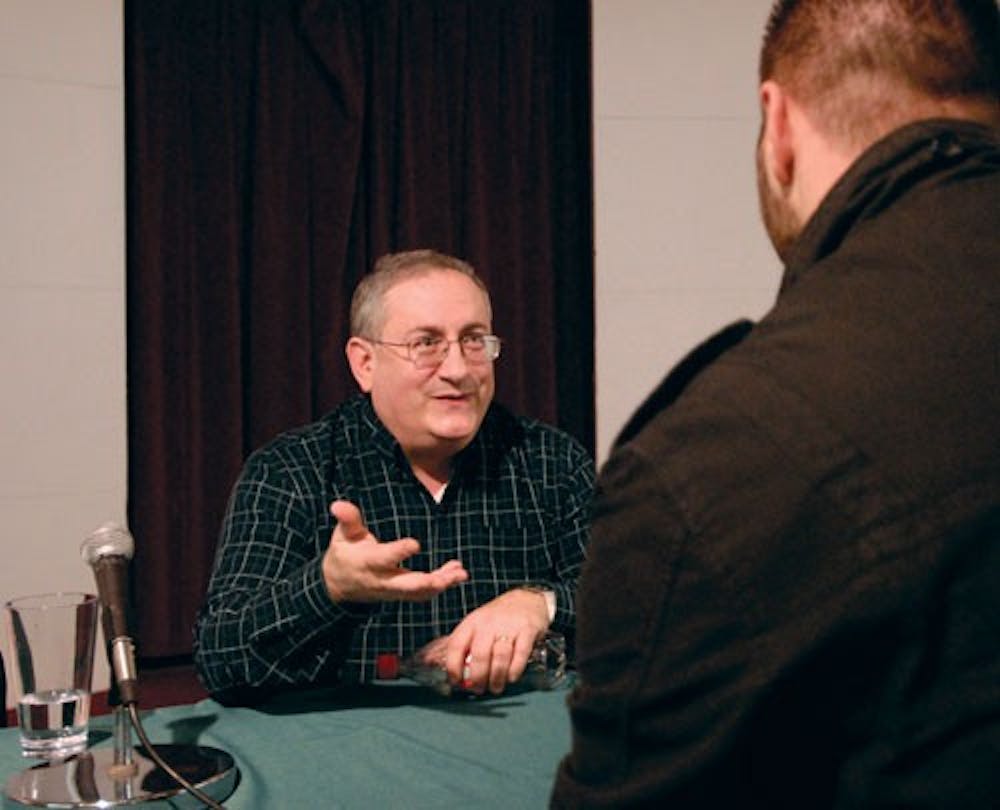The continent of Africa – big enough to fit Europe, U.S. and China within its borders – is rich in minerals and resources, but Africans continue to struggle with poverty.\nThe IU African Student Association presented a symposium dubbed “Rich Africa” Wednesday in the Indiana Memorial Union to discuss Africa’s resource and human wealth as well as obstacles and possible solutions.\nA multiethnic, multiracial group of IU students and faculty came together to discuss the stereotypes and portrayals of Africa in Western media and talked about ways to educate others about the positive roles Africa plays in the global economy.\nAxelle Atchade, the president of IUASA, said that the event was an opportunity to discuss the realities of the continent as well as reinforce the positive strides African leaders are taking to make things better.\n“I hope students learned that Africa, first of all, is a continent, not a country, and also that the continent has a lot to offer the world in so many ways,” Atchade said.\nEric Love, IU director of Diversity Education and the moderator of the program, said he hopes participants learned something new and realized the misconceptions about the continent.\n“I hope people here have gained some knowledge and were able to break down some preconceived ideas about Africa,” Love said. “We have heard experts from different disciplines, and I hope the participants are inspired to help in some way.”\nScott Pegg, an IU-Purdue University at Indianapolis professor in the political science department and chairman of the International Friends Committee of Bebor Nursery and Primary School in Bodo City, Ogoni, Nigeria addressed the exploitation of Africa’s natural resources.\n“Most Africans have not benefited from the continent’s wealth,” Pegg said. “It is a phenomenon called the ‘resource curse’ that scholars have arguably said has increased government corruption, misallocation of resources or even no allocation of resources at all.”\nPegg said corrupt governments pocket the money from these resources. Wealth, such as oil from Nigeria and diamonds from Botswana, have been continually extracted from Africa and deposited into wealthier nations like the U.S. and Europe, with little benefit to Africans.\nJeffrey Hart, an IUPUI professor of political science whose research focuses on international politics and political economy, talked about trade relationships between African countries, Europe and the U.S.\n“Who is to blame?” Hart said. “Well, not just some corrupt governments but also big transnational oil and mining companies and the World Bank.”\nHart said that after Sept. 11, U.S. interest has increased in Africa.\n“Because of national security interests, the U.S. has become more involved in Africa,” Hart said. “One good example is the African Growth and Opportunity Act, which allows countries to trade with low or zero tariffs or taxes. … This is good start.”\nUna Okonokwo Osili, IUPUI professor of economics and chair of the African and African-American Studies Committee, discussed the role of African women in development.\nOsili emphasized the role of female education in Africa, calling it the “magic bullet” that would not only empower African women but help also children.\n“We can improve problems like child health, child nutrition, fertility and health care because educated women have smaller and healthier families,” she said. “When you educate a woman, you educate a nation.”
Group of students and faculty talk about Africa’s role in economy

Get stories like this in your inbox
Subscribe





